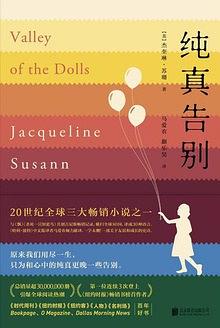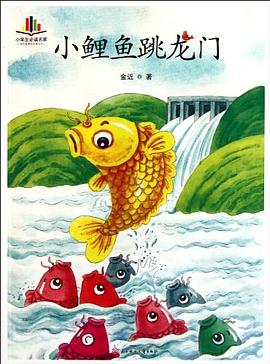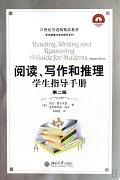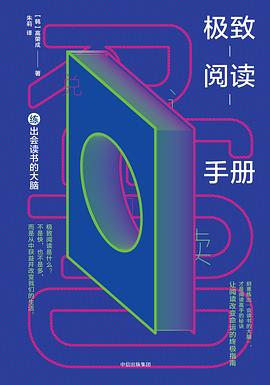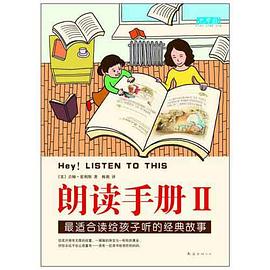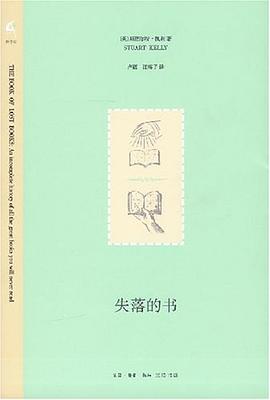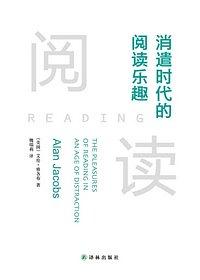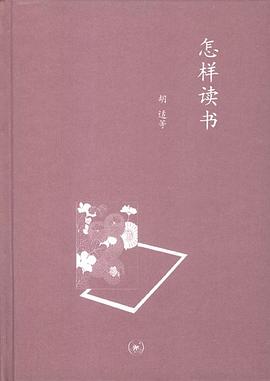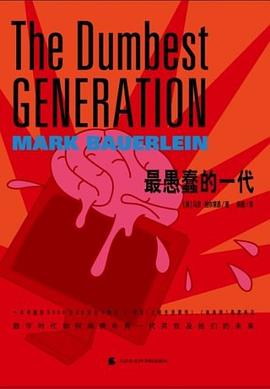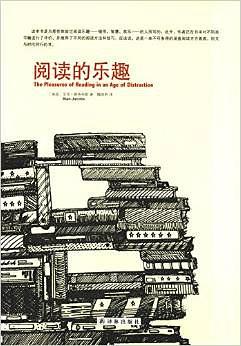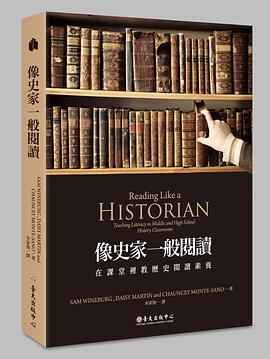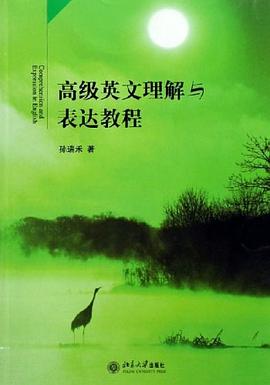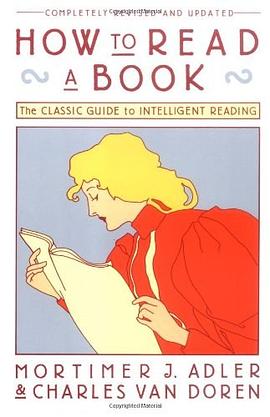

具體描述
How to Read a Book, originally published in 1940, has become a rare phenomenon, a living classic. It is the best and most successful guide to reading comprehension for the general reader. And now it has been completely rewritten and updated.
You are told about the various levels of reading and how to achieve them — from elementary reading, through systematic skimming and inspectional reading, to speed reading, you learn how to pigeonhole a book, X-ray it, extract the author's message, criticize. You are taught the different reading techniques for reading practical books, imaginative literature, plays, poetry, history, science and mathematics, philosophy and social science.
Finally, the authors offer a recommended reading list and supply reading tests whereby you can measure your own progress in reading skills, comprehension and speed.
There are over 190,000 copies in print of this classic guide to getting the most from your reading.
著者簡介
Mortimer J. Adler was Chairman of the Board of the Encyclopaedia Britannica, Director of the Institute for Philosophical Research, and Honorary Trustee of the Aspen Institute. He authored more than fifty books.
圖書目錄
Preface
PART ONE
THE DIMENSIONS OF READING
1. The Activity and Art of Reading
Active Reading
The Goals of Reading: Reading for Information and Reading for Understanding
Reading as Learning: The Difference Between Learning by Instruction and Learning by Discovery
Present and Absent Teachers
2. The Levels of Reading
3. The First Level of Reading: Elementary Reading
Stages of Learning to Read
Stages and Levels
Higher Levels of Reading and Higher Education
Reading and the Democratic Ideal of Education
4. The Second Level of Reading: Inspectional Reading
Inspectional Reading I Systematic Skimming or Prereading
Inspectional Reading II: Superficial Reading
On Reading Speeds
Fixations and Regressions
The Problem of Comprehension
Summary of Inspectional Reading
5. How to Be a Demanding Reader
The Essence of Active Reading: The Four Basic Questions a Reader Asks
How to Make a Book Your Own
The Three Kinds of Note-making
Forming the Habit of Reading
From Many Rules to One Habit
PART TWO
THE THIRD LEVEL OF READING: ANALYTICAL READING
6. Pigeonholing a Book
The Importance of Classifying Books
What You Can Learn from the Title of a Book
Practical vs. Theoretical Books
Kinds of Theoretical Books
7. X-raying a Book
Of Plots and Plans: Stating the Unity of a Book
Mastering the Multiplicity: The Art of Outlining a Book
The Reciprocal Arts of Reading and Writing
Discovering the Author's Intentions
The First Stage of Analytical Reading
8. Coming to Terms with an Author
Words vs. Terms
Finding the Key Words
Technical Words and Special Vocabularies
Finding the Meanings
9. Determining an Author's Message
Sentences vs. Propositions
Finding the Key Sentences
Finding the Propositions
Finding the Arguments
Finding the Solutions
The Second Stage of Analytical Reading
10. Criticizing a Book Fairly
Teachability as a Virtue
The Role of Rhetoric
The Importance of Suspending Judgment
The Importance of Avoiding Contentiousness
On the Resolution of Disagreements
11. Agreeing or Disagreeing with an Author
Prejudice and Judgment
Judging the Author's Soundness
Judging the Author's Completeness
The Third Stage of Analytical Reading
12. Aids to Reading
The Role of Relevant Experience
Other Books as Extrinsic Aids to Reading
How to Use Commentaries and Abstracts
How to Use Reference Books
How to Use a Dictionary
How to Use an Encyclopedia
PART THREE
APPROACHES TO DIFFERENT KINDS OF READING MATTER
13. How to Read Practical Books
The Two Kinds of Practical Books
The Role of Persuasion
What Does Agreement Entail in the Case of a Practical Book?
14. How to Read Imaginative Literature
How Not to Read Imaginative Literature
General Rules for Reading Imaginative Literature
15. Suggestions for Reading Stories, Plays, and Poems
How to Read Stories
A Note About Epics
How to Read Plays
A Note About Tragedy
How to Read Lyric Poetry
16. How to Read History
The Elusiveness of Historical Facts
Theories of History
The Universal in History
Questions to Ask of a Historical Book
How to Read Biography and Autobiography
How to Read About Current Events
A Note on Digests
17. How to Read Science and Mathematics
Understanding the Scientific Enterprise
Suggestions for Reading Classical Scientific Books
Facing the Problem of Mathematics
Handling the Mathematics in Scientific Books
A Note on Popular Science
18. How to Read Philosophy
The Questions Philosophers Ask
Modern Philosophy and the Great Tradition
On Philosophical Method
On Philosophical Styles
Hints for Reading Philosophy
On Making Up Your Own Mind
A Note on Theology
How to Read "Canonical" Books
19. How to Read Social Science
What Is Social Science?
The Apparent Ease of Reading Social Science
Difficulties of Reading Social Science
Reading Social Science Literature
PART FOUR
THE ULTIMATE GOALS OF READING
20. The Fourth Level of Reading: Syntopical Reading
The Role of Inspection in Syntopical Reading
The Five Steps in Syntopical Reading
The Need for Objectivity
An Example of an Exercise in Syntopical Reading: The Idea of Progress
The Syntopicon and How to Use It
On the Principles That Underlie Syntopical Reading
Summary of Syntopical Reading
21. Reading and the Growth of the Mind
What Good Books Can Do for Us
The Pyramid of Books
The Life and Growth of the Mind
Appendix A. A Recommended Reading List
Appendix B. Exercises and Tests at the Four Levels of Reading
Index
· · · · · · (收起)
讀後感
《如何阅读一本书》读书笔记 《如何阅读一本书》 美 艾德勒 范多伦 著 郝明义 朱衣 译 商务印书馆 2009年3月11印 978-7-100-04094-5 综述: 本书是一本指导如何阅读的实用类书籍。书中提倡想要提高自己的读者要有“主动阅读”的勇气。进而将“主动阅读”分为四个层次...
評分一个字一个字敲完这长长的笔记,真是佩服自己。但其实,我是没什么耐心的人,能这样做到,实在是这本书的功劳。 是的,这是一个评价,因为我已经读懂了这本书,可以说,我赞同作者的观点,并相信这样做能提高自己的阅读技巧,所以坚持下来,并会一直实践下去。 读好书,并运用...
評分《如何阅读一本书》读书笔记 《如何阅读一本书》 美 艾德勒 范多伦 著 郝明义 朱衣 译 商务印书馆 2009年3月11印 978-7-100-04094-5 综述: 本书是一本指导如何阅读的实用类书籍。书中提倡想要提高自己的读者要有“主动阅读”的勇气。进而将“主动阅读”分为四个层次...
評分 評分好书很多,爱读书的人也多,但知道如何读书的人确不多,至少我认识的人中,我认为真正能够享受阅读快乐并从阅读中获得成长的人不多,所以介绍大家读一读《如何阅读一本书》是一件很有意义的事情。 这本书在国外发行了70年,一直是畅销书前五百名排行榜的常客,在中国商务出版...
用戶評價
: G792-62/A237-1/rev ed.
评分讀瞭很多年的書,贊同書中大的原則。不過,讀書這個事,真的很難一概而論。
评分高中時候第一次讀。每次再翻都有收獲。
评分人肉版 編譯原理 可與龍書對參 http://book.douban.com/subject/1417281/
评分: G792-62/A237-1/rev ed.
相關圖書
本站所有內容均為互聯網搜索引擎提供的公開搜索信息,本站不存儲任何數據與內容,任何內容與數據均與本站無關,如有需要請聯繫相關搜索引擎包括但不限於百度,google,bing,sogou 等
© 2025 book.quotespace.org All Rights Reserved. 小美書屋 版权所有

